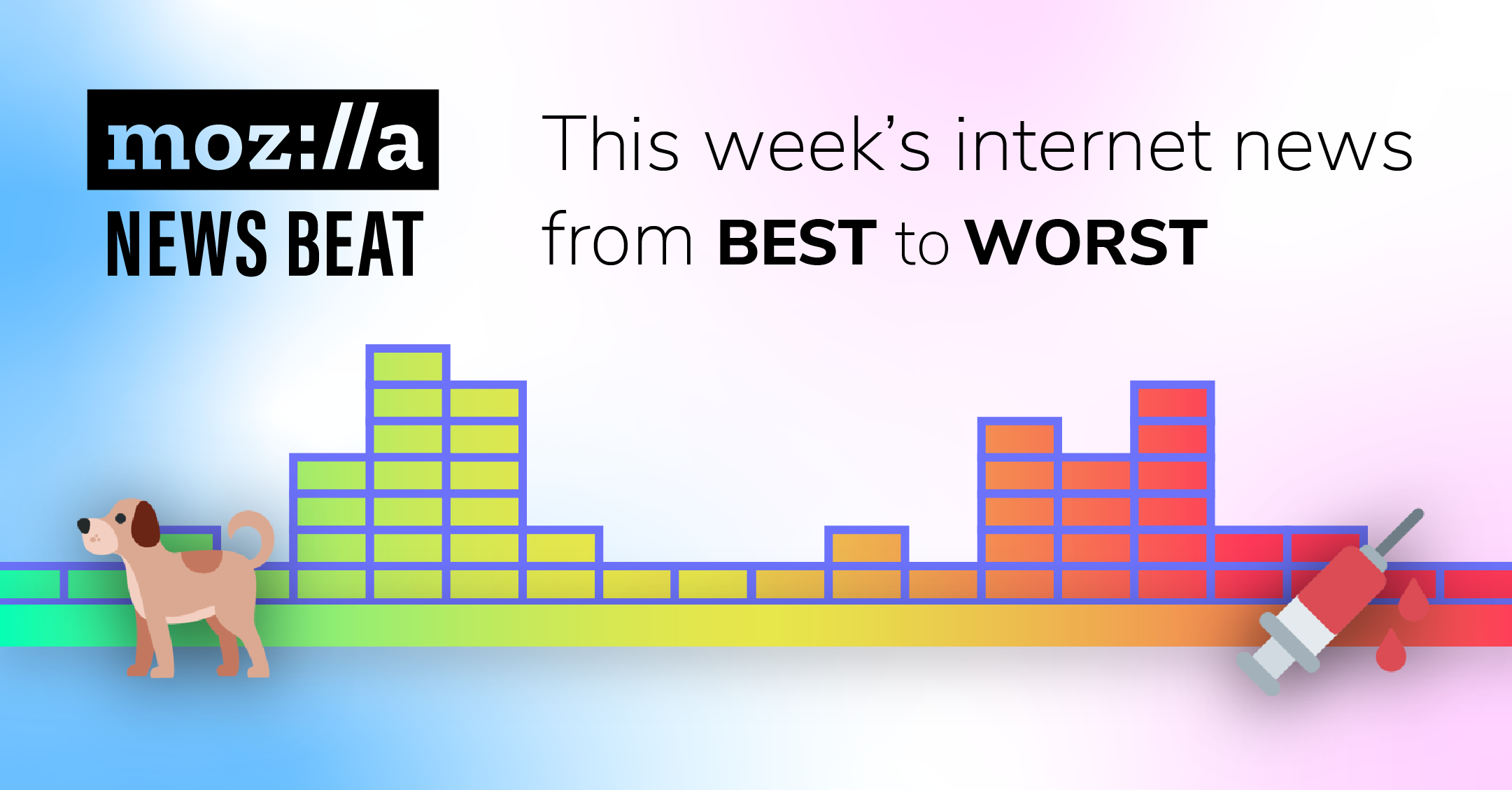
Welcome to the Mozilla News Beat, a glance at the internet news of the week in order of best-to-worst. Enjoy!
Put It There
Sometimes, you just want to hug a dog. Watch this pup offer a handshake and then pivot to full embrace. We could all use a hug right now.
Location Access Denied
In a win for consumers, Apple and Google are cracking down on apps that include software from X-Mode, a location data-collecting data broker. Apple is giving iOS developers two weeks to rid their apps of X-Mode’s trackers while Google is offering Android devs one week. Apps that don’t comply risk losing access to the companies’ mobile operating systems.
Facebook Facing Pressure
40 out of 50 U.S. states and the country’s Federal Trade Commission have called out Facebook, describing the social media powerhouse as a monopoly. New York Attorney General Letitia James led the investigation, noting that gobbling up competitors like Instagram and WhatsApp has limited proper competition. Prosecutors are demanding the three apps separate.
Cookie Crumbled
Amazon and Google are being fined by France’s Commission Nationale de L’informatique et des Libertés for placing tracking cookies on users’ devices without their consent. Google is expected to pay $121 million while Amazon is being fined over $42 million. France is offering the tech giants 90 days to comply, after which France will fine both an additional $121,000 for each day they resist.
Misinfo No More
When videos claiming Biden lost the U.S. election started to spread on YouTube, the service defended the decision to leave them on the site (saying discussion of election results was fair game). Now, YouTube is reversing that decision in order to limit the spread of misinformation, stating, “enough states have certified the election results to determine a President-elect.”
Year In Review
Is it just me or did this year feel like five years in one? Every December, Google gives us the top search terms of the year via an annual report, but 2020’s list is extra interesting. Top search terms like “election results,” “coronavirus” and “Kobe Bryant,” join searches from (seemingly) eons ago, like “Where to buy toilet paper?”
Encoded Racism
Mozilla fellow Debroah Raji offers a look into how technology is biased against those who don’t have a say in creating it. From self-driving cars that are more likely to hit pedestrians with darker skin to hiring tools that exclude women from technical roles, the technology entering every facet of society currently reinforces bias.
The Email
When Dr. Timnit Gebru, co-lead of Google’s Ethical AI team, sent an email to an internal work group about a pending research paper and also criticized Google’s lack of diversity and treatment of workers from underrepresented groups, she later found her work email account switched-off — Google had severed ties with the researcher. Now, over a thousand Google employees are joining more than 1,500 academic researchers to stand by her side, in protest of the company’s decision. Google says it will investigate Dr. Gebru’s exit.
The Paper
In addition to Dr. Gebru’s now infamous email, the researcher also drew ire for refusing her manager’s request to remove her name from a research paper on AI and ethics. What was so contentious about the paper? According to WIRED, not much. Here’s WIRED’s take: the paper’s findings are uncontroversial, and, considering the paper didn’t attack Google or its technology, the chances it would have hurt the company’s reputation are small.
Vaccine Hacks
As the U.K. receives its first shots of the COVID-19 vaccine, hackers continue to target vaccine-providers. On Wednesday, partner Pfizer BioNTech said documents on European Medicines Agency (EMA) servers were unlawfully accessed — the latest in a string of cyberattacks targeting groups involved in the vaccine’s distribution. BioNTech notes that neither its, nor Pfizer’s, systems were breached and experts do not expect the hack to slow down the vaccine’s rollout.
Want more? See stories that just missed making the News Beat on our Pocket.
Sign up for our email list to receive the Mozilla News Beat every week in your inbox.
We use Twemoji licensed under the CC-BY 4.0 open source license.














